 W
WConstantin Angelescu was a Romanian politician who served as an interim Prime Minister of Romania for five days, between 30 December 1933 and 3 January 1934.
 W
WConstantin C. Arion was a Romanian politician, affiliated with the National Liberal Party, the Conservative Party and, after 1918, the People's Party. He served two terms as Minister of Religion and Public Instruction, one term as Minister of Agriculture, and another one as Interior Minister before World War I. His career peaked in 1918, when he was Minister of Foreign Affairs.
 W
WPetre Sebeşanu Aurelian, 13 December 1833 – 24 January 1909, was a Romanian economist, politician and academic. A member of the National Liberal Party (PNL), he served as a Prime Minister of Romania between 2 December 1896 and 12 April 1897.
 W
WVasile Boerescu was a journalist, lawyer and Romanian politician who served as the Minister of Justice, Minister of Foreign Affairs, Minister of Religion and Public Instruction and held other various governmental offices during the existence of United Principalities.
 W
WDimitrie Bolintineanu was a Romanian poet, though he wrote in many other styles as well, diplomat, politician, and a participant in the revolution of 1848. He was of Aromanian origins. His poems of nationalist overtone fueled emotions during the unification of Wallachia and Moldavia.
 W
WIoan Borcea was a Romanian zoologist. Born in Buhoci, Bacău County, he entered secondary school at the National College in Iași before going on to the Costache Negruzzi Boarding High School, from which he graduated in 1897. He then entered the natural sciences section of Iași University's sciences faculty, graduating in 1900. Initially a teaching assistant in the animal morphology department, Borcea received a scholarship to study in France the following year. In 1903, he obtained an undergraduate degree from the natural sciences faculty of the Sorbonne. In 1905, the same institution awarded him a doctorate; his thesis dealt with the genitourinary system of the Elasmobranchii. He performed research at the marine biology stations in the French villages of Banyuls-sur-Mer and Roscoff, as well as in Naples.
 W
WTraian Brăileanu or Brăilean was an Austro-Hungarian-born Romanian sociologist and politician. A native of the Bukovina region, he attended Czernowitz University, where he studied philosophy and classical languages, subsequently earning a doctorate. Ending up as a translator in Vienna, he fought for Austria during World War I. At the conclusion of hostilities, returned to the renamed Cernăuți, now part of Greater Romania. There, he soon became a professor of sociology, leading a "Cernăuți School" of academics during the interwar period.
 W
WDimitrie Brătianu (1818–1892) was the Prime Minister of Romania from 22 April to 21 June 1881 and Minister of Foreign Affairs from 10 April 1881 until 8 June 1881. He was the son of Dincă Brătianu and the older brother of Ion C. Brătianu. As mayor of Bucharest, he witnessed a major event in Romania's history: the arrival of King Carol I of Hohenzollern-Sigmaringen, the first king of Romania. Brătianu received Carol I near the Baneasa forest, where he gave a speech to over 30,000 people.
 W
WMatei B. Cantacuzino was a Romanian jurist and politician.
 W
WIon Horia Leonida Caramitru, OBE was a Romanian stage and film actor, stage director, and political figure. He was Minister of Culture between 1996 and 2000, in the Romanian Democratic Convention (CDR) cabinets of Victor Ciorbea, Gavril Dejeu, Radu Vasile, Alexandru Athanasiu, and Mugur Isărescu. He was married to actress Micaela Caracaș and had three sons: Ștefan, Andrei, and Matei Caramitru.
 W
WPetre P. Carp was a Moldavian, later Romanian statesman, political scientist and culture critic, one of the major representatives of Romanian liberal conservatism, and twice the country's Prime Minister. His youth was intertwined with the activity of Junimea club, which he co-founded with critic Titu Maiorescu as a literary society, and then helped transform it into a political club. He left behind a budding career as Junimea's polemicist and cultural journalist, joining the state bureaucracy of the United Principalities, the Romanian diplomatic corps, and ultimately electoral politics. A speaker for aristocratic sentiment and the Romanian gentry, Carp helped create the Conservative Party from the various "White" conservative clubs (1880), but also led a Junimist dissident wing against the Conservative mainstream leaders Lascăr Catargiu and Gheorghe Grigore Cantacuzino. He was a contributor to the Junimea platform Convorbiri Literare, and founder of the newspapers Térra (1868) and Moldova (1915).
 W
WGheorghe Chițu was a Wallachian, later Romanian lawyer, politician, and man of letters, whose activities were mostly centered on the region of Oltenia. The recipient of a classical education, which compensated for his middle-class background and allowed him to study at the University of Vienna, he was also deeply involved in the Wallachian Revolution of 1848 as an early adherent of "Red" liberalism. He became a propagandist and organizer for the National Party, founding Vocea Oltului gazette in 1857. Chițu was confirmed as the United Principalities' first-ever elected provincial mayor, at Craiova, where he also worked as a lawyer and prosecutor. His political radicalism and his participation in the Romanian Freemasonry were nuanced by his defense of the Romanian Orthodox Church against a reduction of its assets. Serving for almost twenty years in the Assembly of Deputies and Senate, he criticized Westernization and championed local political models, including Oltenia's Tudor Vladimirescu. His parallel work as a publicist and publisher resulted in noted collaborations with Constantin D. Aricescu, Bogdan Petriceicu Hasdeu, and Theodor Aman; it also contributed to his being inducted into the Romanian Academy in 1879.
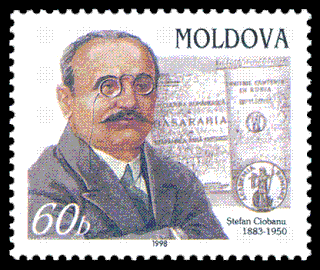 W
WȘtefan Ciobanu was a Romanian historian and academician, author of some important works about ancient Romanian literature, Romanian culture in Basarabia under Russian occupation, Bessarabian demography, fervent advocate of the introduction of the Romanian language in the schools of Bessarabia, vice-president of the Romanian Academy between 1944–1948. He served as Minister of Education (1917–1918) of the short-lived Moldavian Democratic Republic.
 W
WNicolae Colan was an Austro-Hungarian-born Romanian cleric, a metropolitan bishop of the Romanian Orthodox Church. From a peasant background, he completed high school in Brașov, followed by a period of wandering during World War I that saw him in Sibiu, Bucharest, Moldavia, Ukraine and ultimately Bessarabia, where he advocated union with Romania. After the war, he completed university and taught New Testament theology at Sibiu from 1924 to 1936. Entering the clergy in 1934, he soon became bishop at Cluj, remaining there when Northern Transylvania temporarily became Hungarian territory during World War II. In 1957, he advanced to Metropolitan of Transylvania, an office he held for the final decade of his life.
 W
WVasile Conta was a Romanian philosopher, poet, and politician.
 W
WNeculai Costăchescu was a Romanian chemist and politician.
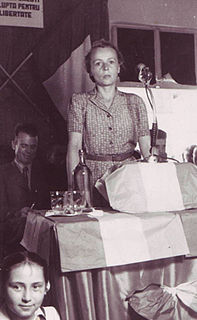 W
WConstanța Crăciun was a Romanian politician and educator.
 W
WNicolae Crețulescu was a Wallachian, later Romanian politician and physician. He served two terms as Prime Minister of Romania: from 1862 to 1863, and from 1865 to 1866. He was elected to the Romanian Academy. He was the 3rd president of the Romanian Academy from 1872 to 1873.
 W
WMircea Diaconu is a Romanian actor, writer, and politician. First appearing on stage in 1970, and on screen two years later, Diaconu pursued a lengthy career in both formats, working with a series of prominent directors. He acted in some sixty films through the 2000s, and continued to act in theatre during the ensuing decade. He took part in the Romanian Revolution. In 2008, he entered electoral politics, becoming a senator, and subsequently serving a term as a Member of the European Parliament. In 2019, he ran for president, placing fourth.
 W
WIon Gheorghe Duca was Romanian politician and the Prime Minister of Romania from 14 November to 29 December 1933, when he was assassinated for his efforts to suppress the fascist Iron Guard movement.
 W
WConstantin C. Giurescu was a Romanian historian, member of the Romanian Academy, and professor at the University of Bucharest.
 W
WOctavian Goga was a nationalistic and later far-right Romanian politician, poet, playwright, journalist and translator.
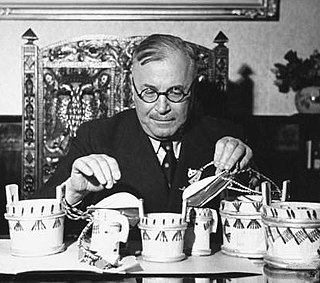 W
WDimitrie Gusti was a Romanian sociologist, ethnologist, historian, and voluntarist philosopher; a professor at the University of Iaşi and the University of Bucharest, he served as Romania's Minister of Education in 1932–1933. Gusti was elected a member of the Romanian Academy in 1919, and was its president between 1944 and 1946. He was the main contributor to the creation of a new Romanian school of sociology.
 W
WSpiru C. Haret was an Romanian mathematician, astronomer and politician. He made a fundamental contribution to the n-body problem in celestial mechanics by proving that using a third degree approximation for the disturbing forces implies instability of the major axes of the orbits, and by introducing the concept of secular perturbations in relation to this.
 W
WPuiu Haşotti is a Romanian politician. He is a vice-president of the National Liberal Party (PNL) and the leader of the party's group in the Senate.
 W
WCsilla Hegedüs is a Romanian politician and member of the Democratic Alliance of Hungarians in Romania (UDMR) who served as Minister of Culture and Deputy Prime Minister in the Victor Ponta cabinet from November to December 2014. She was also State Secretary within the same ministry from March to November 2014.
 W
WVictor Iamandi was a Romanian politician who served as the Romanian Minister of Justice in 1938–1939, in several successive cabinets.
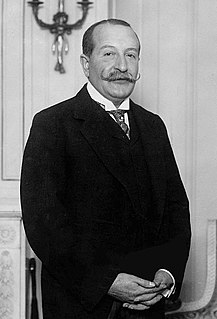 W
WTake or Tache Ionescu was a Romanian centrist politician, journalist, lawyer and diplomat, who also enjoyed reputation as a short story author. Starting his political career as a radical member of the National Liberal Party (PNL), he joined the Conservative Party in 1891, and became noted as a social conservative expressing support for several progressive and nationalist tenets. Ionescu is generally viewed as embodying the rise of middle-class politics inside the early 20th century Kingdom of Romania, and, throughout the period, promoted a project of Balkan alliances while calling for measures to incorporate the Romanian-inhabited Austro-Hungarian regions of Transylvania, Banat and Bukovina. Representing his own faction inside the Conservative Party, he clashed with the group's leadership in 1907–1908, and consequently created and led his own Conservative-Democratic Party.
 W
WNicolae Iorga was a Romanian historian, politician, literary critic, memoirist, poet and playwright. Co-founder of the Democratic Nationalist Party (PND), he served as a member of Parliament, President of the Deputies' Assembly and Senate, cabinet minister and briefly (1931–32) as Prime Minister. A child prodigy, polymath and polyglot, Iorga produced an unusually large body of scholarly works, establishing his international reputation as a medievalist, Byzantinist, Latinist, Slavist, art historian and philosopher of history. Holding teaching positions at the University of Bucharest, the University of Paris and several other academic institutions, Iorga was founder of the International Congress of Byzantine Studies and the Institute of South-East European Studies (ISSEE). His activity also included the transformation of Vălenii de Munte town into a cultural and academic center.
 W
WConstantin I. Istrati was a Romanian chemist and physician. He was president of the Romanian Academy between 1913 and 1916.
 W
WDr. Hunor Kelemen is a Romanian politician and Hungarian language writer. The current president of the Democratic Alliance of Hungarians in Romania (UDMR), he has been a member of the Romanian Chamber of Deputies since 2000, and was nominated as his party's candidate for the 2009, 2014, and 2019 presidential elections. From December 2009 to May 2012 he was Romania's Minister of Culture in the Emil Boc and Mihai Răzvan Ungureanu governments, a role he has reprised between March and October 2014 in the government headed by Victor Ponta.
 W
WAlexandru I. Lapedatu was Cults and Arts and State minister of Romania, President of the Senate of Romania, member of the Romanian Academy, its president and general secretary.
 W
WIoan Lupaş was a Romanian historian, academic, politician, Orthodox theologian and priest. He was a member of the Romanian Academy.
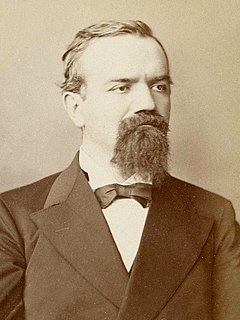 W
WTitu Liviu Maiorescu was a Romanian literary critic and politician, founder of the Junimea Society. As a literary critic, he was instrumental in the development of Romanian culture in the second half of the 19th century.
 W
WSimion Mehedinți was a Romanian geographer, member of the Romanian Academy and supporter of the fascist Iron Guard. A figure of importance in the Junimea literary club, he was for a while editor of its magazine, Convorbiri Literare.
 W
WIon I. Nistor was a Romanian historian and politician. He was a titular member of the Romanian Academy from 1915 and a professor at the universities of Cernăuți and Bucharest, while also serving as Minister of State for Bukovina, Minister of Public Works, Minister of Labor, and Minister of Religious Affairs and the Arts with a number of governments from 1918 to 1940.
 W
WAlexandru Ioan Odobescu was a Romanian author, archaeologist and politician.
 W
WAlexandru Hristea Orăscu was a Romanian architect famous for his Neoclassicist and Renaissance-revival works. He studied architecture in Berlin and Munich. He was the president of the Romanian Architects’ Society, and served as rector of the University of Bucharest from 1885 to 1892.
 W
WTheodor Paleologu is a Romanian historian, diplomat and politician. An independent who was formerly a member of the National Liberal Party (PNL), the People's Movement Party (PMP) and the Democratic Liberal Party (PD-L), he was a member of the Romanian Chamber of Deputies for Bucharest from 2008 to 2016. Additionally, in the first Emil Boc cabinet he was Minister of Culture, Religious Affairs and Cultural Heritage.
 W
WAlexandru Papadopol-Calimah also known as Alexandru Papadopol-Callimachi was a Romanian historian, publicist and politician who served as the Minister of Foreign Affairs and as the Minister of Culture and Public Instruction of the Principality of Romania.
 W
WIon Pas was a Romanian novelist, translator and left-wing politician.
 W
WAndrei Gabriel Pleșu is a Romanian philosopher, essayist, journalist, literary and art critic. He has been intermittently involved in politics, having been appointed Minister of Culture (1989–91), Minister of Foreign Affairs (1997–99) and presidential counsellor for external affairs (2004–05).
 W
WPetru Poni was a Moldavian chemist and mineralogist.
 W
WMihai Dumitru Ralea was a Romanian social scientist, cultural journalist, and political figure. He debuted as an affiliate of Poporanism, the left-wing agrarian movement, which he infused with influences from corporatism and Marxism. A distinguished product of French academia, Ralea rejected traditionalism and welcomed cultural modernization, outlining the program for a secular and democratic "peasant state". His ideology blended into his scholarly work, with noted contributions to political sociology, the sociology of culture, and social and national psychology. He was a professor at the University of Iași and, from 1938, the University of Bucharest.
 W
WConstantin Alexandru Rosetti was a Romanian literary and political leader, born in Bucharest into the princely Rosetti family.
 W
WRadu R. Rosetti was a Romanian brigadier general, military historian, librarian, and a titular member of the Romanian Academy.
 W
WTheodor Rosetti was a Romanian writer, journalist and politician who served as Prime Minister of Romania between 23 March 1888 and 22 March 1889.
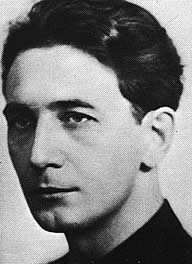 W
WHoria Sima was a Romanian fascist politician, best known as the second and last leader of the fascist paramilitary movement known as the Iron Guard. Sima was also the vice president of the council of ministers and de facto co-leader in Ion Antonescu's National Legionary State. Sima had previously served briefly as State Secretary of Education under Gheorghe Tătărescu in 1940, and as a short-lived Minister of Religion and Arts in the government of Ion Gigurtu.
 W
WMarin Sorescu was a Romanian poet, playwright, and novelist.
 W
WIon Strat was a Moldavian, later Romanian jurist and politician.
 W
WDimitrie Sturdza was a Romanian statesman and author of the late 19th century, and president of the Romanian Academy between 1882 and 1884.
 W
WChristian Tell was a Transylvanian-born Wallachian and Romanian general and politician.
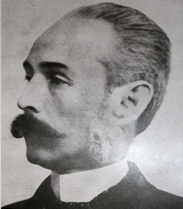 W
WGheorghe Dem Teodorescu was a Wallachian, later Romanian folklorist, literary historian and journalist.
 W
WEmil Răzvan Theodorescu is a Romanian historian and politician. He has researched and written extensively on art history in particular. A member of the Social Democratic Party (PSD), he was a member of the Romanian Senate for Iaşi County from 2000 to 2004, and for Botoşani County from 2004 to 2008. In the Adrian Năstase cabinet, he was Minister of Culture and Religious Affairs from 2000 to 2004.
 W
WV. A. Urechia was a Moldavian, later Romanian historian, Romantic author of historical fiction and plays, academic and politician. The author of Romanian history syntheses, a noted bibliographer, heraldist, ethnographer and folklorist, he founded and managed a private school, later holding teaching positions at the University of Iaşi and University of Bucharest. Urechia was also one of the founding members of the Romanian Academy and, as frequent traveler to Spain and fluent speaker of Spanish, a corresponding member of the Royal Spanish Academy. He was the father of satirist Alceu Urechia.
 W
WGeorge D. Vernescu was a Wallachian-born Romanian politician.